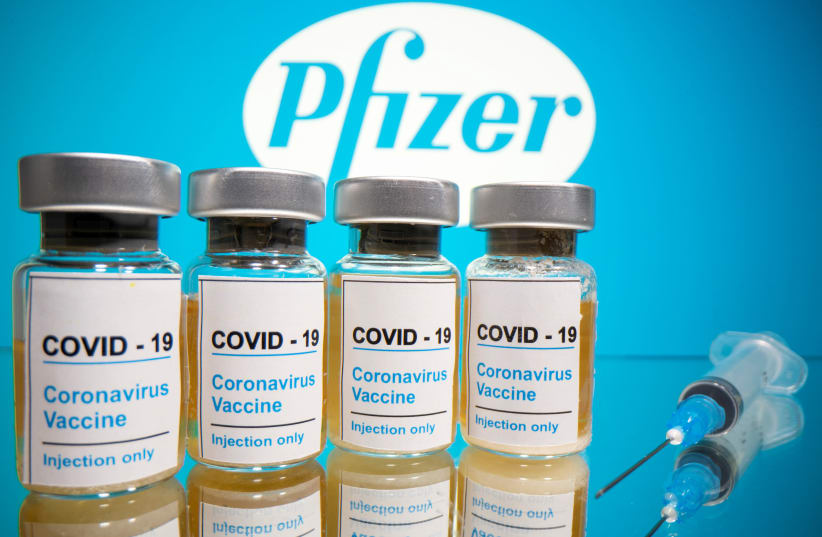Pfizer Inc said it will apply to US health regulators on Friday for emergency use authorization (EUA) of its COVID-19 vaccine, the first such application in a major step toward providing protection against the new coronavirus.
The application to the US Food and Drug Administration (FDA) comes just days after Pfizer and German partner BioNTech SE reported final trial results that showed the vaccine was 95% effective in preventing COVID-19 with no major safety concerns.
Pfizer's shares rose 2% and BioNTech climbed 5% on the news that a vaccine could soon be available, raising hopes for the end of a pandemic that has claimed more than a quarter of a million lives in the United States and over 1.3 million worldwide.
The application also includes safety data on about 100 children 12-15 years of age. The company said 45% of US trial participants are 56-85 years old.
"Filing in the US represents a critical milestone in our journey to deliver a COVID-19 vaccine to the world and we now have a more complete picture of both the efficacy and safety profile of our vaccine," Pfizer Chief Executive Officer Albert Bourla said in a statement.
The companies expect the FDA to grant the EUA by mid-December and said they will begin shipping doses almost immediately. Pfizer has said it expects to have 50 million vaccine doses ready this year, enough to protect 25 million people.
An FDA advisory committee tentatively plans to meet Dec. 8-10 to discuss the vaccine, a source familiar with the situation told Reuters, though the dates could change.
The final trial data showed the vaccine provided a similar level of protection across different ages and ethnicities - an encouraging result as the disease disproportionately hurts the elderly and minorities.
Of the 170 volunteers who contracted COVID-19 in Pfizer's trial involving over 43,000 people, 162 had received only a placebo, meaning the vaccine was 95% effective, far higher than originally expected. US FDA had set minimum bar for efficacy of 50%. Pfizer said nearly 42% of global participants and 30% of US participants in the Phase 3 study have racially and ethnically diverse backgrounds.
Moderna Inc is expected to be the next company to seek a US emergency use nod for a COVID-19 vaccine. An initial analysis of data from its late-stage trial showed the vaccine was 94.5% effective. Final results and safety data are expected in the coming days or weeks.
Both the Pfizer/BioNTech and Moderna vaccines work using a new technology to trigger an immune response known as synthetic messenger RNA that can be produced at scale much more quickly than traditional vaccines.
Of dozens of drugmakers and research institutions racing to develop COVID-19 vaccines, the next late-stage data is expected to come from AstraZeneca Plc, which is working with the University of Oxford, in November or December.
Johnson & Johnson said it expects to have data needed to seek US authorization for its experimental vaccine by February.
